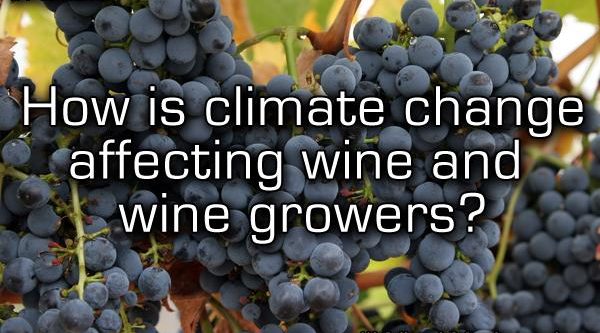
If you want to know more about global warming, look to your favorite Beaujolais. Data on grape harvests in the famed French wine region show a dramatic shift towards hotter and drier weather, climate change researchers said on Thursday.
Grape picking season has jumped forward by an average of nearly two weeks since 1988 compared to the previous 600 years, according to the study, whose authors said it showed previously extreme weather had become the norm.
“It is a warning,” said Christian Pfister, a climate change professor at the University of Bern, Switzerland, who worked on the study published in the journal Climate of the Past.
“It shows that the warm extremes in the past […] have become normal in the present.”
Winemakers are being forced to abandon time-honored techniques as hotter summers boost the sugar content of grapes, meaning wines have higher alcohol content and different flavors.
Harvest records can help cast light on climate change, as the grape picking season starts each year when the fruits are ripe, with hotter weather making them ripen faster.
The study used archives including harvesters’ pay records and newspaper reports to track the start of the grape harvest in the winemaking hub of Beaune in France’s east Burgundy region.
Researchers found that for more than six centuries — between 1354 and 1987 — grapes were usually picked from 28 September onwards, but from 1988 to 2018 the season began 13 days earlier on average as a result of “rapid” climate warming.
Paris temperature records also showed the number of exceptionally hot years had dramatically increased since 2003, with half of the spring-summer seasons since then falling into the top 5% hottest, the study showed.
Winemakers were already seeing the impacts of warming climates, said Pierre Jhean, the wine director at the Henri de Villamont wine producer just north of Beaune.
“We have some days with 40 degrees and it is not traditional for the burgundy,” he told the Thomson Reuters Foundation.
“For the winemaker, we need to adapt […] we need to make another style of wine and another style of vinification,” he said referring to the process of turning grapes into wine.
Warmer temperatures have created a boom in new vineyards across the south of England and Wales as previously damp areas turn into prime grape-growing land.
“It’s good and bad,” said Charlie Holland, chief executive of English sparkling wine firm Gusbourne.
“It means we’re able to fully ripen our grapes to an extent that we weren’t before, but at the same time what comes with climate change is changeable weather […] that makes it very difficult for us as farmers to grow the grapes.”